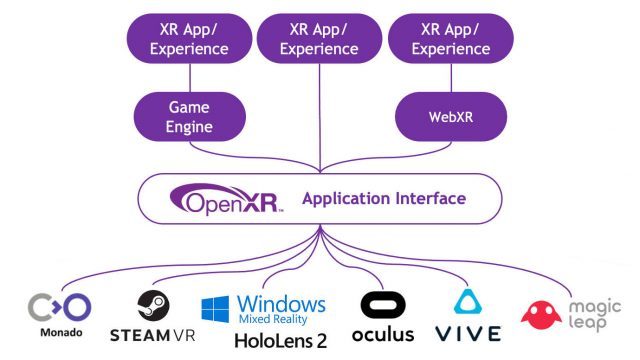Unity has long been a public supporter of OpenXR—an industry standard designed to streamline VR development by making it easier for apps to support a wide range of headsets—but the company has yet to deploy support for the standard. As a key figure in OpenXR (owed to it being one of the leading VR game engines), it’s good news today to hear the company affirm its commitment to the standard and say that it’s accelerating work to bring OpenXR to Unity.
OpenXR is a royalty-free standard that aims to standardize the development of VR and AR applications, making for a more interoperable ecosystem. The standard has been in development since 2017 and is backed by virtually every major hardware, platform, and engine company in the VR industry, including key AR players. Earlier this year the standard took a huge step forward by announcing the start of certifications for compliant implementations.

Facebook, Microsoft, Valve, Unreal Engine, and others have been making progress toward supporting OpenXR in their platforms and now Unity says it’s moving to do the same.
“We have been closely monitoring the development of the OpenXR standard. We’re at an inflection point now, where OpenXR 1.0 has been ratified and OpenXR runtimes by various vendors are reaching maturity. This inflection point has accelerated our efforts to enable OpenXR in Unity,” writes Matt Fuad, Sr. Technical Product Manager of AR/VR at Unity.
The company expects to have a preview version of OpenXR in Unity by the end of 2020 which will focus on platforms already supported by the engine (like Oculus, SteamVR, etc), and in early 2021 it plans to roll out experimental support for any conformant OpenXR runtime. Though Faud warns that wider support will take some time to be battle tested.
“Given the unbounded combinations of possible hardware/software configurations, we cannot test or guarantee that all configurations will work optimally. As issues are discovered with runtimes, we will work to contribute conformance tests and specification changes back to the Khronos working group to help the community as a whole. We will also make sure it’s clear to developers which platforms have been fully tested and thus supported by Unity.”
Faud says that Unity plans to implement OpenXR as part of its existing XR plug-in framework so that developers can continue to use many of the engine’s existing development workflows while still creating applications which are OpenXR compliant.
“We’re excited about the progress that has been made and believe this is a significant step towards supporting open standards,” he concludes.






